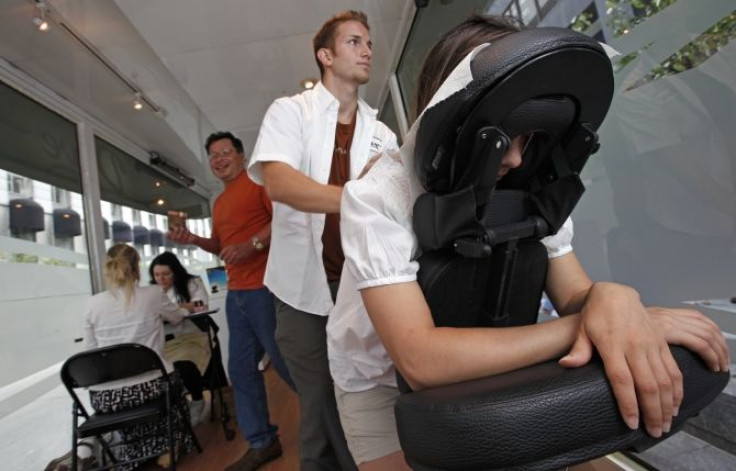Touch Therapy May Reduce Pain in Cancer Patients

A new study says that touch therapy improves quality of life for people diagnosed with cancer.
The therapy called Jin Shin Jyutsu is an ancient form of touch therapy. It is said that the therapy balances the energy in the body.
The study included some 159 people who were diagnosed with cancer. At the start of the study session, all participants had to assess and rate symptoms their pain and discomfort on a scale of 0 to 10 with 0 meaning no symptom.
The study found that with each therapy session, participants reported improvement in symptoms of pain and nausea.
"I was pleased to see quantitatively the improvements that patients noted in these primary areas of discomfort. It was interesting to note that regardless of age, sex or diagnosis, cancer patients received a statistically significant improvement in the side effects from treatment. It is encouraging to note that Jin Shin Jyutsu made improvements in these areas without adding additional unwanted effects that so often occur with medication interventions," said Jennifer Bradley, Jin Shin Jyutsu integrative practitioner at the University of Kentucky Markey Cancer Center.
"The American Cancer Society has noted that quality of life is an issue for all cancer patients; those undergoing treatment, late stage patients, and cancer survivors. There is a need for additional research to develop evidence-based interventions that have a positive impact on the quality of life for all of these individuals without adding to their burden. From what I have seen in my office and the results shown in the study, I believe that Jin Shin Jyutsu has great promise in this area," Bradley said.
Complementary and alternative medicines therapies are used by many cancer-patients to relieve pain. These therapies include medicinal herbs, hypnosis, meditation and acupuncture. Aside from pain, these therapies are used to treat other effects of cancer such as fatigue or nausea. Some researchers say meditation is helpful in cancer therapy and that meditation can improve cancer-related cognitive dysfunction.
Alternative medicines and therapies still carry some stigma about their use and effectiveness. In order to prove, or disprove, treatments such as touch therapy, further research is needed. For now, touch therapy shows promise as a possible supplement to normal cancer treatments to help improve quality of life in cancer patients.



























